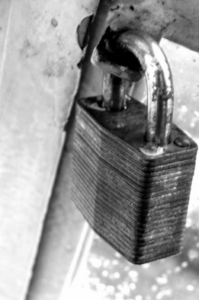 We recently came across a question from a North Carolina gun owner whose neighbor gave him a large locked gun safe with an unknown quantity of firearms inside. The safe belonged to his neighbor’s husband who had passed away. The types of firearms inside are also unknown. The person receiving the safe wanted to know about legal ramifications of acquiring the firearms (for both handguns and rifles), what documents are required, and how to record paperwork associated with the guns. Both North Carolina and federal gun laws will affect the transfer. Although there may be a treasure inside the locked safe, there could be potential trouble when it is opened.
We recently came across a question from a North Carolina gun owner whose neighbor gave him a large locked gun safe with an unknown quantity of firearms inside. The safe belonged to his neighbor’s husband who had passed away. The types of firearms inside are also unknown. The person receiving the safe wanted to know about legal ramifications of acquiring the firearms (for both handguns and rifles), what documents are required, and how to record paperwork associated with the guns. Both North Carolina and federal gun laws will affect the transfer. Although there may be a treasure inside the locked safe, there could be potential trouble when it is opened.
The first thing to consider about this North Carolina gun ownership transfer: Were the firearms bequeathed to the wife upon her husband’s death? The decedent may have designated another beneficiary in his estate for the “mystery” firearms in the safe. In which case, the beneficiary has the authority to decide how the guns will be transferred, if they even desire to unload the property. If there are Title II NFA firearms (suppressors, short-barreled rifles, automatics) inside the safe, the widower may unknowingly possess them illegally if her husband had not created a gun trust appointing her as an authorized user or co-owner, or she has been officially appointed by the court as personal representative of her husband’s estate. The firearms may be part of a probate estate if they were not included in a gun trust, and any transfers must be documented as part of the probate file. If the widower is the primary beneficiary of the mystery firearms, she has full rights when deciding how and to whom to transfer the firearms.
Handguns can be easily transferred if the recipient obtains a permit, which must be given to the current gun “owner” before the firearms are transferred. If the recipient has a North Carolina concealed carry permit, the handgun transfer is simpler, as no permit is required, but proper records must be kept. When it comes to Title II firearms, the recipient will need an approved ATF Form 4 for each one. Our North Carolina gun trust attorneys provide a sample ATF Form 4 here. If any Title II firearms were not legally owned by the decedent, they cannot be legally transferred, and must be turned into the ATF.